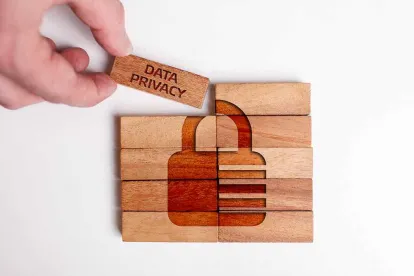With a new administration, public policy changes are on the horizon for the telecom industry. The FCC in the Biden era has plenty to consider, including net neutrality, closing the digital divide, and the future of the Telephone Consumer Protection Act.
On March 10, long-time communications industry insider Gigi Sohn joined Womble Bond Dickinson’s Womble PRIDE, an affinity group for the firm’s LGBTQ+ team members and allies, and the National LGBT+ Bar Association for an in-depth look at how the Biden administration may reshape the communications landscape. Womble Bond Dickinson Partner David Carter, the leader of the firm’s TCPA Defense Force, moderated the event. Former FCC Acting Chairwoman and Commissioner Mignon Clyburn provided the introductions.
Net Neutrality under Biden
Net neutrality—the concept that service providers must treat all internet communications equally, rather than charging different rates or providing different levels of service based on the user, website, content, etc.—has been on the FCC’s radar for more than a decade.
Carter said the Obama administration promoted net neutrality, but with a “lighter touch.” For example, the Obama-era FCC initially tried to implement net neutrality without declaring internet service providers to be common carriers, which would make them subject to greater regulatory oversight. Only when that approach was challenged in the courts dud the Obama administration FCC declare internet service providers to be common carriers. The Trump administration reversed course, unwinding federal net neutrality regulations and working to block states from enacting their own net neutrality measures.
The pendulum looks to swing back toward net neutrality during the Biden administration, Carter said. He added that we could see a 50-state patchwork approach to net neutrality in the near future.
“It’s only a highly charged political issue in D.C.,” Sohn said, noting that surveys indicate widespread public support for the FCC’s 2015 Open Internet actions. She noted that many Americans don’t have a choice for their broadband provider, meaning the marketplace doesn’t provide much protection for consumers.
“The debate about net neutrality isn’t about blocking and throttling; it’s about whether the FCC has the authority to protect consumers and ensure competition,” Sohn said. She expects the Biden administration to reinstate a prior version of the rules.
Ultimately, Sohn said Congress needs to weigh on whether the FCC can regulate net neutrality. If not, she also expects to see individual states address the issue.
“We can debate the scope of FCC authority,” Sohn said. But she said the FCC must have some role in broadband oversight and regulation.
“The debate about net neutrality isn’t about blocking and throttling; it’s about whether the FCC has the authority to protect consumers and ensure competition."
The Future of the TCPA & Section 230
Carter, who focuses a large portion of his practice on guiding companies in TCPA compliance and dispute resolution, said the TCPA is unusual in that it imposes statutory penalties with no cap on class action damages. This puts companies at a huge risk if they are found in noncompliance.
“Can the FCC create balance, or only Congress?” Carter asked.
Sohn said “I can’t imagine an issue the FCC is less equipped to fix. This is something Congress has to fix.” She said there is bipartisan agreement that the law needs updating to reflect changes in technology. The TCPA became law in 1991—before the advent of smart phones and an eternity ago in the fast-moving world of communications technology.
Also under scrutiny is Section 230 of the Communications Decency Act, which provides widespread protection for web platforms regarding content posted by third parties. Sohn said Section 230 is under fire both from the right, which says conservative voices are being silenced online, and the left, which is concerned about the prevalence of false news on the internet.
“The burdens of Section 230 [should] fall different on social media platforms based on their sizes,” she said, noting that small websites shouldn’t be held to the same level of scrutiny as internet titans. “We don’t want to kill the innovators.”
“The burdens of Section 230 [should] fall different on social media platforms based on their sizes. We don’t want to kill the innovators.” -GIGI SOHN
Closing the Digital Divide
The COVID-19 pandemic made clear how society depends on broadband for essential functions—working from home, online school, ordering groceries, telemedicine, etc. But it also brought to light the fact that many Americans don’t have consistent, reliable access to the internet. These underserved customers can be found in both low-income urban and rural areas, and the issue of closing the so-called digital divide is a key issue for the Biden administration. Both Carter and Sohn say the subject will receive a renewed emphasis in the next four years.
Sohn said the first step is a comprehensive study indicating where broadband is still needed and which communities remain unserved.
“You can’t make good policy with bad maps,” she said. “The focus should be getting every single household in American robust broadband access.”
You can watch the video below of the “Big, Bold, and Bipartisan? Communications Policy During the Biden Administration” discussion.



 />i
/>i
